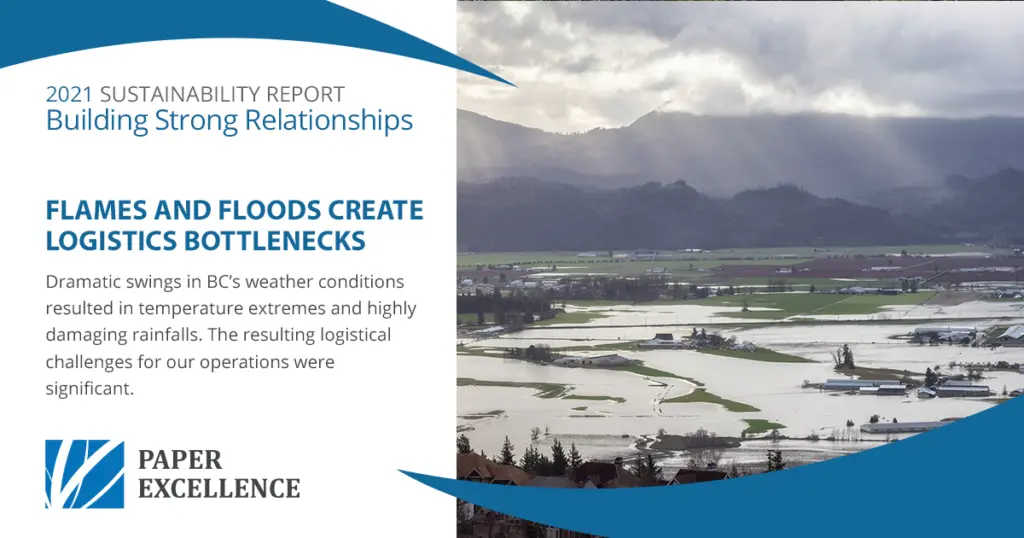
Practices and Perspectives
Transportation disruptions in British Columbia were so severe that at one point in late 2021 that Metro Vancouver – home to some 2.5 million people – was briefly cut off from any road connection with the rest of Canada due to flooding.
Rail operations in various parts of the province were also impacted, as they had been earlier in the year during large wildfires. And this was on top of pre-existing port congestion and shipping-pattern disruptions caused by the pandemic.
It amounted to major challenges for Paper Excellence, which continued in 2022. There were delays in getting raw materials to mills, and inventories climbed as it became harder and more expensive to get products to customers.
Supply-chain and weather challenges at times exacerbated each other. Lack of chips resulted in a sudden December production halt at Port Alberni, without time for the usual scope of pre-shut down procedures. Then unusually low temperatures caused equipment freeze-ups that delayed the re-start even when chips were available.
But ingenuity and exceptional effort helped moderate the impacts, particularly for customers. This involved using multiple transportation carriers and modes, and creative routing to get product to them.
Some pulp from Skookumchuck, for example, was sent by rail to the Surrey Distribution Centre, put on empty barges going back to the Crofton mill, and then loaded onto break bulk ships at Crofton’s deep sea port. This was a particularly useful work-around when shipping container capacity was at a premium.
